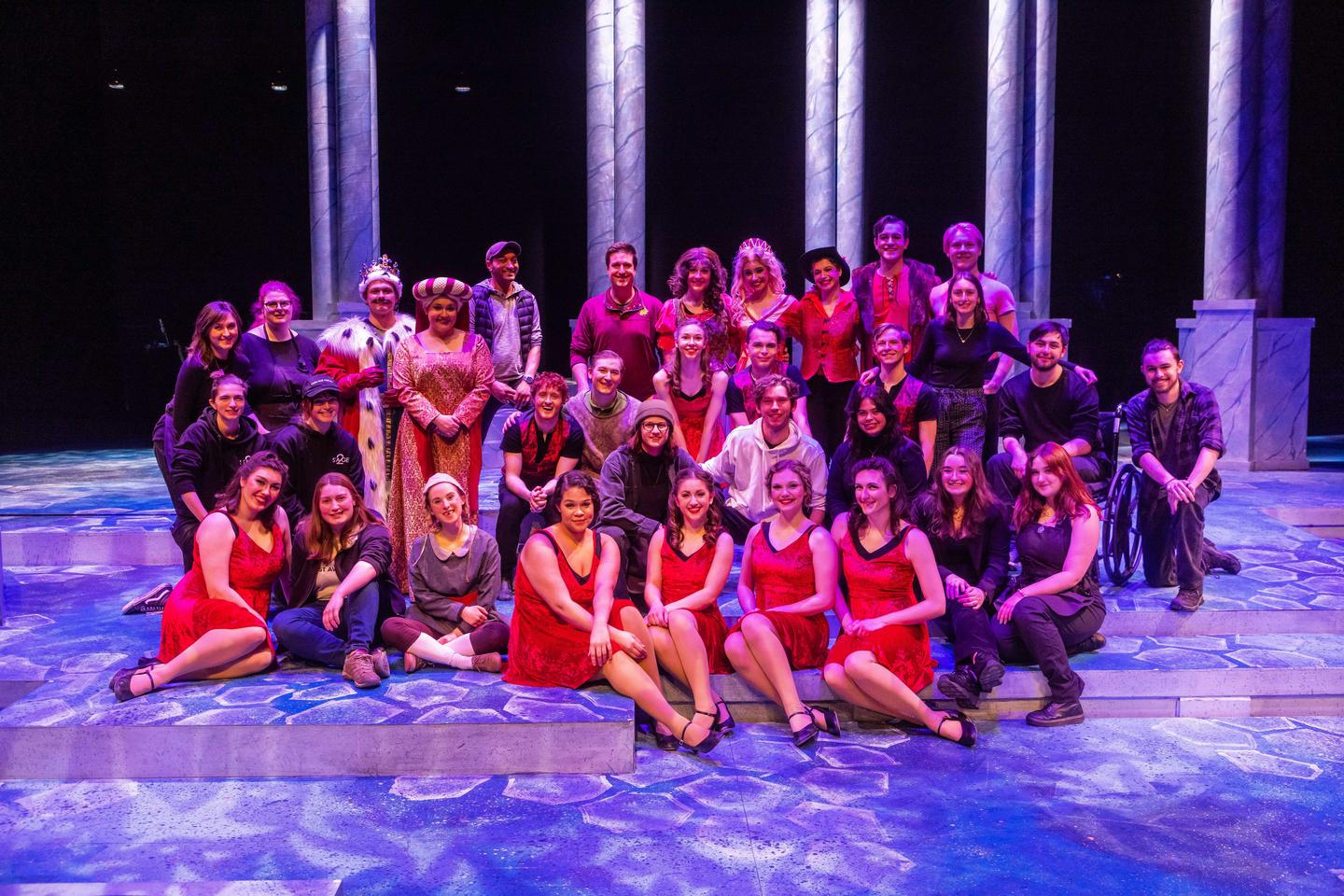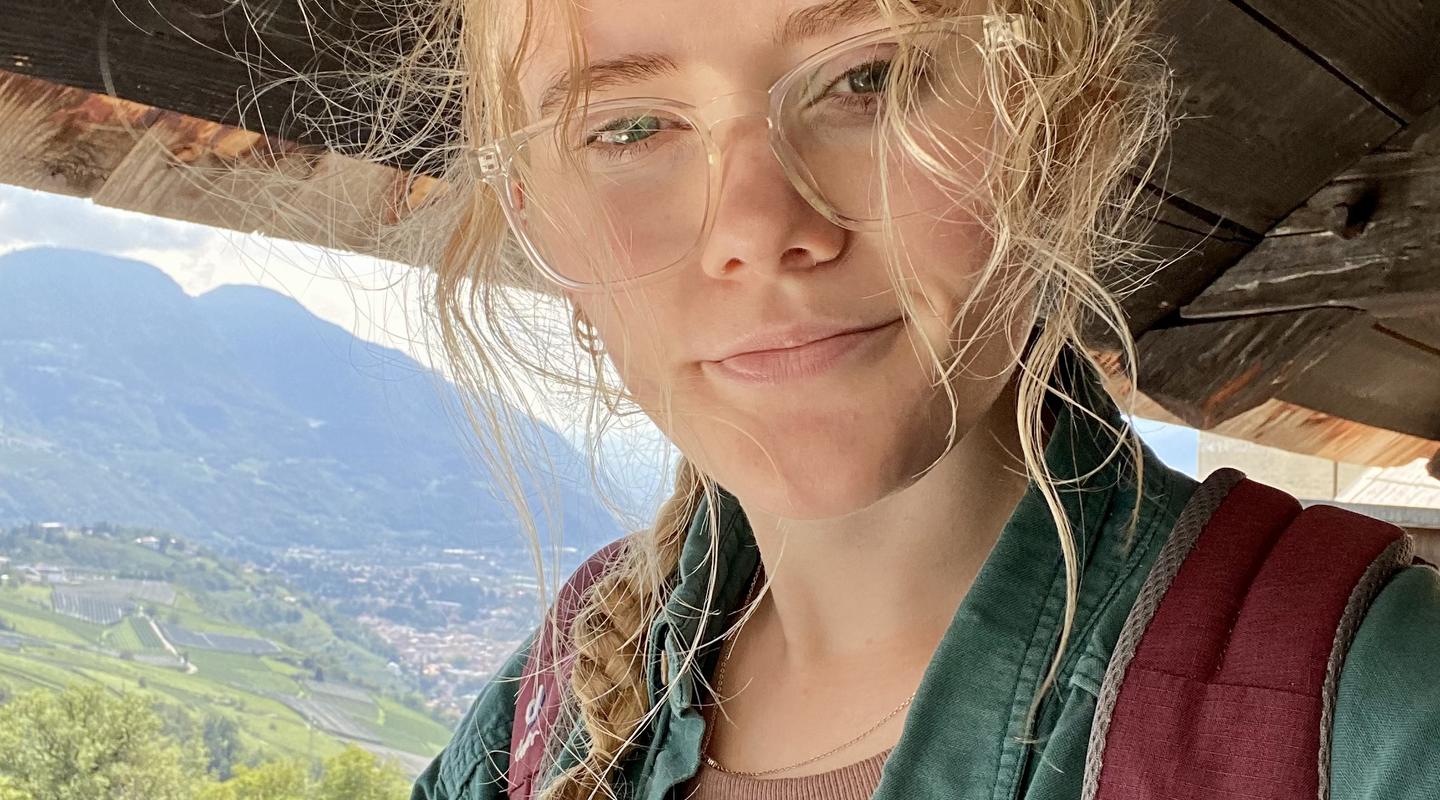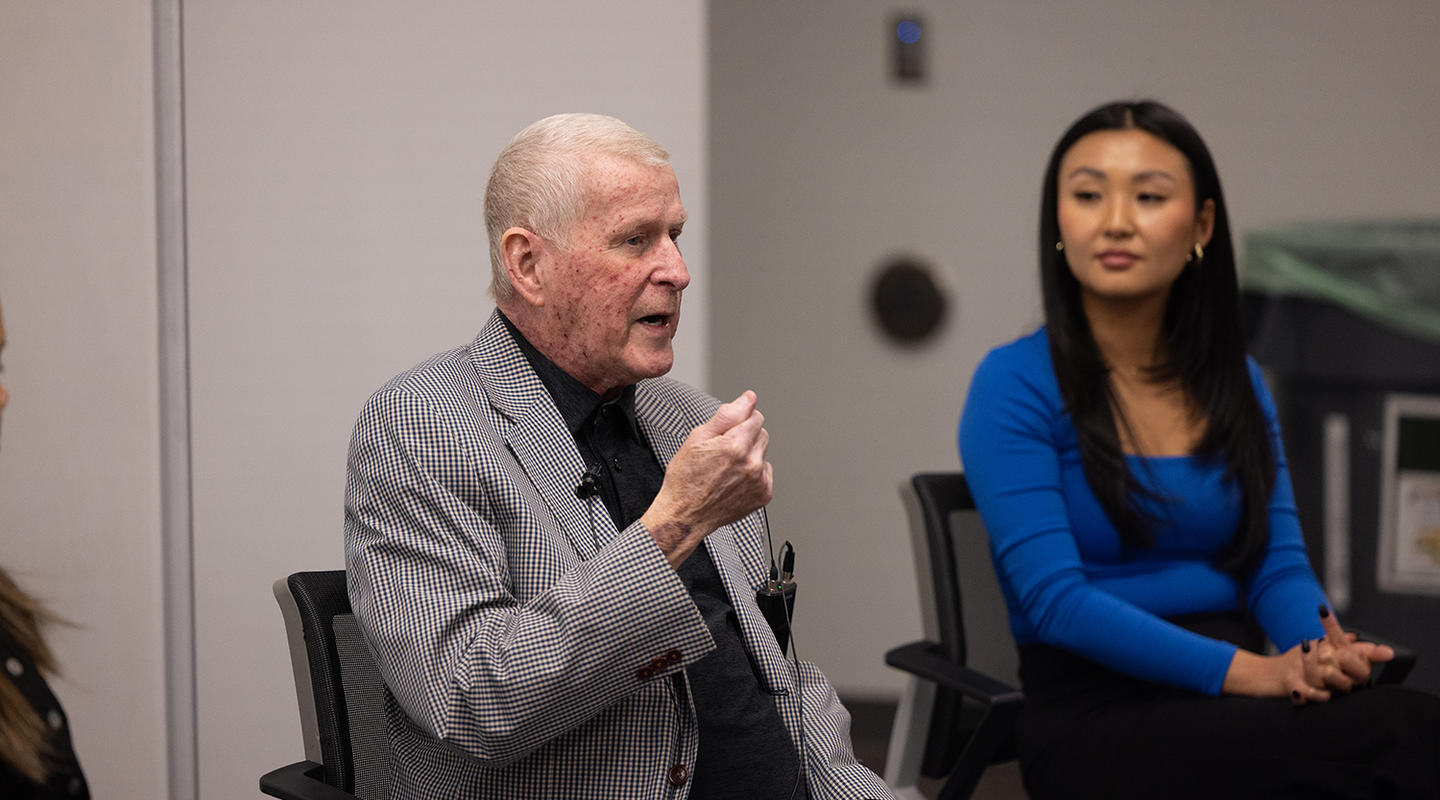
Oliver Swimeley (on the right) with the cast and crew of Pippin. Courtesy: University of Minnesota Duluth
University of Minnesota Duluth (UMD) student Oliver Swimeley has always been a bit of a Renaissance man. In eighth grade, he became a Navy Cadet. In high school, he was involved in “everything under the sun,” from drama and band to cheerleading and student council.
“My high school was great,” he says. “But being such a small school, there weren’t many opportunities for me to excel and to grow as much as I would like to.”
Swimeley grew up in Barnum, Minnesota, about 40 miles from Duluth. He was familiar with UMD from his many visits to campus for band and choir competitions, and he felt a strong connection to the school. So when the time came to choose a college, he knew just where he wanted to go.
Perseverance
When he arrived on campus, Swimeley was impressed with the wide range of opportunities available in the UMD theatre department.
“I did theatre all throughout high school, and because our school was so small the only opportunity I had was to act,” he says. “So when I got to UMD I found out, holy heck—there’s lighting design, and set design, and costume design, and dramaturgy, and all these other things. There is so much more to do with a theatre degree than just acting.”
Despite the positive experiences he was having on and off stage, Swimeley encountered a number of health-related challenges during his freshman year. He has cerebral palsy, and one day in class he fell down and needed to go to the ER. Unfortunately, this was just the first of many medical scares—all in all, Swimeley visited the ER 57 times during his first year.
Understandably, many students would fall behind academically while dealing with that kind of stress. But Swimeley managed to keep up with his studies, and he says he owes it all to his professors.
“Without the support of my professors, I wouldn’t have passed. I wouldn’t have gotten through my freshman year,” he says. “The professors at UMD care about you. They want you to do great things, and they want you to be the best you can be.”
On-campus advocate
Swimeley wants all students living with disabilities at UMD to have that level of support. He has been deeply involved in making that happen. For example, he worked to get a ramp installed to facilitate better access to the rehearsal stage for people who use wheelchairs, and he is currently advocating for accessible lockers in the theatre department.
Scholarship support has also played an important role in Swimeley’s success. He has received several scholarships, including the U Promise Scholarship. “It’s immensely helpful,” he says about the financial support. “To be able to have less debt coming out of college—I can’t put into words how helpful that is.”
Now in his junior year, Swimeley is looking ahead to the future. After he graduates, he intends to pursue a master of education at the Twin Cities campus, with the ultimate goal of teaching K-12 theatre and sharing his love of the stage with future generations.
In the meantime, Swimeley is making the most of his time at UMD and appreciates the many positive experiences he’s had doing what he loves.
“Every day I get to work with fellow theatre people and create stories—and that’s what I really enjoy doing,” he says. “As somebody with a disability, I want to tell difficult stories. I want to tell stories about people with disabilities, and other underprivileged groups, because our stories are often stories that don’t see the light of day. And they deserve to be told with dignity and respect.”
Support an equitable and inclusive learning environment by making a gift to the UMD Disability Services Resources Fund.


